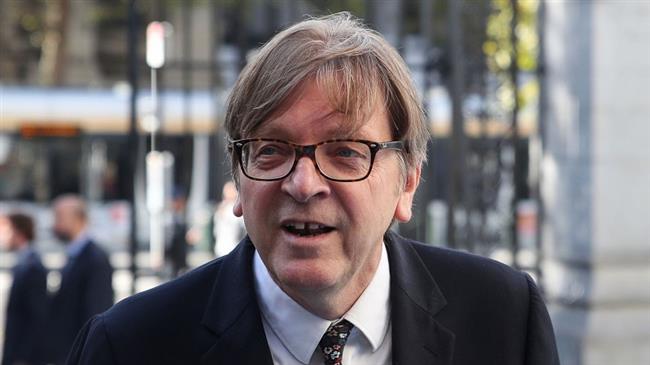EU Brexit spokesman says Britain assured him about those who do not apply for settled status
The UK government has sought to reassure the EU that its citizens living in the UK will not be deported if they fail to apply for settled status, the European parliament’s Brexit co-ordinator has said. UK Ministers, however, have refused calls to give EU citizens physical proof of their right to stay in the UK after Brexit for fear of “another Windrush” setting off fresh anger.
When Guy Verhofstadt, the European Parliament's co-ordinator, hailed a partial climbdown after a meeting with Brexit secretary Stephen Barclay on Thursday, the, hopes were raised of an amicable outcome.

Verhofstadt contends that the ability of millions of EU citizens to print out a letter confirming they had been granted ‘settled status’ amounted to a concession.
“It has always been the case that people could print a copy of their confirmation letter, but this can’t be used as evidence of status,” the Home Office said.
The estimated 3.6 million EU residents in the UK at present are, quite rightly, worried that, without physical documentation to prove their status in the UK, they may become subject to victimisation by prospective employers and landlords – and potentially immigration enforcement, as happened in the Windrush scandal.
Windrush generation refers to the immigrants who were invited to the UK between 1948 and 1971 from Caribbean countries such as Jamaica, Trinidad and Tobago and Barbados. ... The immigrants came at the invitation of the British government, which was facing a labour shortage due to the destruction caused by World War II.
The 1971 Immigration Act gave Commonwealth citizens who were already living in the UK indefinite leave to remain, permanent residency, in other words.
Great consternation over the treatment of members of the Windrush generation has been mounting in recent months as many reports have surfaced regarding elderly people being denied services, losing their jobs and even facing deportation.
Many of the Windrush generation had arrived as children on their parents' passports. And although they have lived in Britain for many decades - paying taxes and insurance - they never formally became British citizens.
Mr Verhofstadt also spread confusion by claiming he had been reassured that there was no risk of deportation for EU citizens who fail to secure settled status by the deadline of June next year.

“The idea would be that even these people, after the grace period, they will have the possibility to apply giving the grounds for why it was not possible [to apply for settled status] within the normal procedures,” he said he had been told.
It was revealed this week that up to 900,000 of the estimated 3.6 million UK-based EU nationals have yet to apply to secure their status.
Many appear to be holding back because they wrongly believe they will be rejected because they earn less than £30,000.
In fact, that is the salary threshold currently applied to skilled migrants from outside the EU – and may not even be extended to new arrivals from the EU after Brexit.
Luke Piper, a legal adviser to the3million, said on Twitter: “This is an easy promise, what about those who face hostile environment without status? What happens to their rights to access health care, jobs?”
Speaking to BBC Radio 4’s Today programme, Verhofstadt acknowledged that there were also anxieties among UK citizens living in EU countries, which the EU would seek to address.
“There is a problem also with anxiety for the UK citizens living on the continent,” he said. “So what we’re going to do now is increase the pressure in the coming days. There will be a letter going out from all sides – parliament, the council – to member states saying: ‘Look, in 12 countries things are going very well.’
“In 12 countries they have a declaratory system, so there’s no need to advocate for citizenship of that country. In others it is more difficult and we want to be sure that, in 2020, in these other 15 countries of the European Union, things are going smoothly.”
Iran’s president extends condolences to Azerbaijan’s Aliyev over plane crash
VIDEO | Press TV's news headlines
Iran says Christmas opportunity to remind ourselves of Jesus Christ call for 'justice, peace'
VIDEO | Eyewitness video shows moment of plane crash in Kazakhstan
VIDEO | Lebanese Christians celebrate Christmas over ruins
Iran FM: ‘Too early’ to predict Syria’s future for those thinking ‘victories’ achieved
The big role of steel industry in Iran’s development
Yemen fires second hypersonic missile at Israeli targets in as many days










 This makes it easy to access the Press TV website
This makes it easy to access the Press TV website